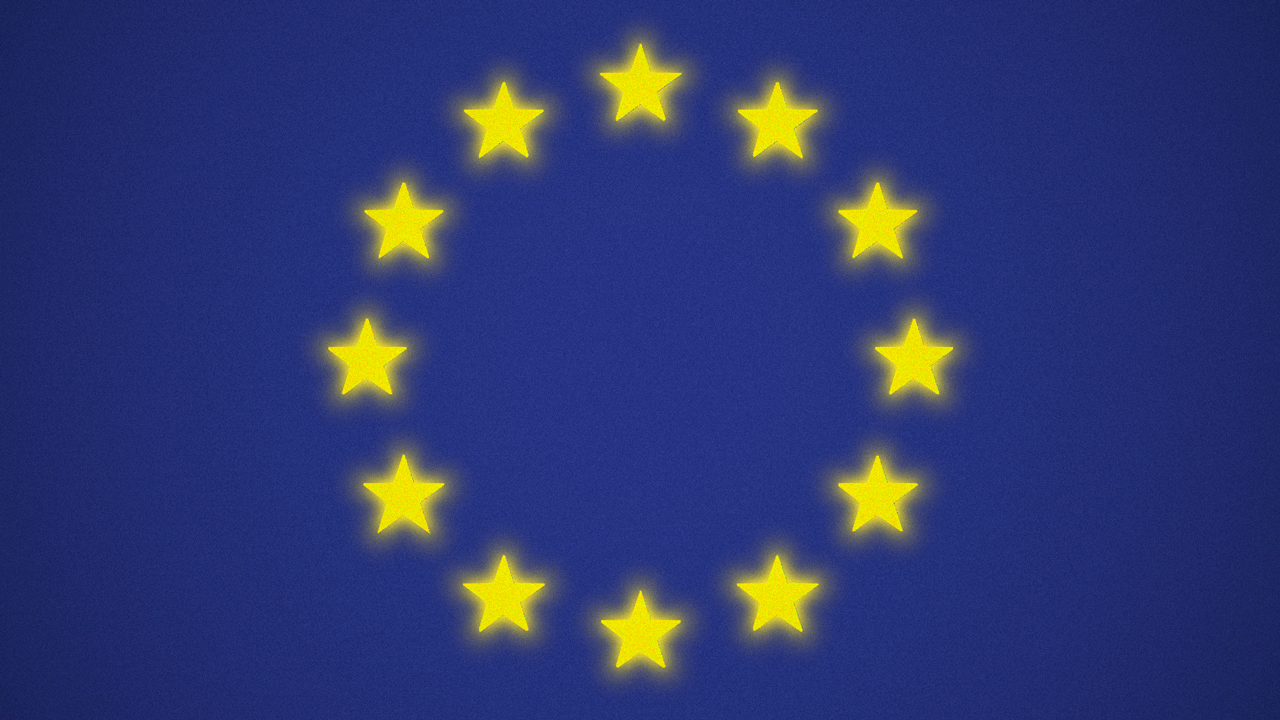| | | | | | | | | | | Axios Markets | | By Matt Phillips and Emily Peck · Sep 07, 2022 | | Welcome back. It's Emily. Today we are getting messy. Or Europe is — especially the U.K., now home to two leaders named Elizabeth (the queen and the new prime minister). - Coincidentally, 489 years ago on this date, one of England's OG Elizabeths was born, a reminder that the "Glass Cliff" has been around for a while.
Today's newsletter, edited by Kate Marino, is 1,041 words, 4 minutes. | | | | | | 1 big thing: R.I.P. Europe's energy system |  | | | Illustration: Shoshana Gordon/Axios | | | | In what would have been an unimaginable scenario just a few months ago, Russia has halted all natural gas flows to Europe through its Nord Stream pipeline — plunging the continent into a new era of uncertainty that's reverberating across markets, Matt writes. Why it matters: The gas cutoff bodes incredibly poorly for economic growth in Europe, as a range of industries dependent on abundant Russian gas is being forced to slash production. What they're saying: "This broad and long-term industrial and energy strategy that the government — but also huge parts of the energy-intensive industries — have pursued for decades, building entire sectors like the chemical industry around very cheap Russian gas, has collapsed," Lion Hirth, a professor of energy policy at Berlin-based Hertie School of Governance, tells Axios. What's happening: The euro just plunged to a new 20-year low against the dollar. - The British pound dove to its lowest against the greenback since 1985.
- Yields on European government bonds, which determine costs of borrowing for national governments, have risen as investors factor in the risk of large amounts of new borrowing to finance crisis responses.
Catch up fast: Russia, which supposedly closed the pipeline for maintenance on Friday, surprised no one by announcing that it wouldn't restart gas flows. Zoom out: For decades, Europe — especially the largest European economy, Germany — relied on Russian natural gas for heat and electricity. - Now, Europe is being forced to rebuild its energy system on the fly, using an untested and expensive mix of price caps, rationing and bailouts to make it through the next few months.
Between the lines: Analysts believe Russia wants to inflict economic and financial pain this winter as a means of eroding Europe's solidarity and support for Ukraine, which has been crucial to the country's repulsion of the Russian invasion. The latest: In recent days, countries across the continent have raced to shore up their energy systems in the face of spiraling costs for consumers and companies. What we're watching: Economists' expectations for growth in the EU and U.K., which are dropping fast. Go deeper. |     | | | | | | 2. Charted: Falling expectations |  Data: FactSet; Chart: Axios Visuals |     | | | | | | 3. Catch up quick | | 📉 China's exports fall as demand slows and lockdowns disrupt manufacturing. (FT) 🌾 Putin wants to change terms of the UN-brokered Ukraine grain export deal. (Reuters) ✈️ United Airlines threatens to end JFK service without more flights. (Bloomberg) |     | | | | | | A message from Axios | | Be bullish about 2023 | | |  | | | | Axios Pro is here to help guide you through whatever uncertainties the market throws at us. How it works: Get in touch with our dedicated account team, and we'll equip your organization with the information they need to thrive next year. Learn more. | | | | | | 4. Liz Truss inherits an economic nightmare |  | | | Illustration: Sarah Grillo/Axios | | | | Britain's economy, rendered fragile and brittle by Brexit, has proved incapable of withstanding the twin scourges of the pandemic and energy price inflation. The result is a historic economic implosion, Axios' Felix Salmon writes. By the numbers: One British pound is now worth just $1.15, down from $1.50 on the morning of the Brexit referendum in 2016. - The Bank of England predicts that inflation will hit 13% this quarter. GDP will also turn negative this quarter, it says — and will then stay negative through every quarter of 2023. After that, in 2024 and onward, growth is projected to be "very weak by historical standards."
- Household incomes are expected to fall by 1.5% this year, after accounting for taxes and inflation, and by another 2.25% next year.
Driving the news: The government of incoming prime minister Liz Truss is expected to spend as much as £200 billion ($230 billion) to goose the economy and subsidize energy costs. - The catch: Energy costs are high because demand exceeds supply. Government subsidies will only serve to increase the demand for energy, making it even harder for Britain to find the energy savings it needs.
The big picture: Truss was most recently elected to parliament in December 2019, just weeks before Britain formally left the European Union and months before the pandemic precipitated a seemingly endless litany of scandals surrounding the behavior of lawmakers from the ruling Conservative Party. - The vote that made her prime minister involved just 141,725 voters, all of whom were party members.
The bottom line: Only 5% of Britons expect Truss to be a great prime minister, while 35% think she will be terrible. - The financial markets seem to agree. Two-year U.K. government bonds are yielding 3.14%, compared to just 1.06% for their German equivalents.
|     | | |  | | | | If you like this newsletter, your friends may, too! Refer your friends and get free Axios swag when they sign up. | | | | | | | | 5. California's grid under pressure |  Data: The Applied Climate Information System (ACIS)/Climate Central; Note: Summer refers to June 1 to Oct. 1; Chart: Axios Visuals Europe isn't the only region facing a crisis in its energy markets, Axios Generate co-author Andrew Freedman writes. - For example: Look to California for signs that U.S. electricity grids are also vulnerable to shocks that could leave millions power-starved.
Driving the news: The state's worst-ever September heat wave is putting its notoriously shaky electricity grid through another big test. It held up Tuesday evening, with no rolling blackouts despite an all-time record high power demand of 52,061 megawatts. Why it matters: Heat waves are becoming more intense, more frequent and longer-lasting due to human-caused climate change, and such events are stressing energy infrastructure in new ways. - California's grid operator sought to avoid a repeat of outages that occurred in August 2020, affecting about 800,000 homes and businesses, instead aiming for smaller interruptions if needed.
Zoom in: Since that heat wave two years ago, the state has moved to add generating capacity, battery storage as well as electricity import strategies to bring in more electricity from nearby states. - The California ISO, which operates the state's grid, has leaned on these strategies the past few days. In addition, the state has spotlighted demand-side measures to cut electricity use during peak use periods, between about 4 and 9pm local time.
The big question: Whether California — and the U.S. as a whole — can keep adapting its infrastructure to the shifting climate. It's a question that may continue to keep California power officials up at night, well after this heat wave ends. Go deeper. |     | | | | | | A message from Axios | | Be bullish about 2023 | | |  | | | | Axios Pro is here to help guide you through whatever uncertainties the market throws at us. How it works: Get in touch with our dedicated account team, and we'll equip your organization with the information they need to thrive next year. Learn more. | | | | 🥪 1 thing Matt loves: An honest-to-goodness bacon, lettuce and tomato sandwich. My wife goaded me into making some recently, and it was not a mistake. Nice buttery lettuce, toasted sourdough, vine-ripened tomatoes, a dollop of mayo, and of course, sweet, sweet bacon. Perfection. - Oh, and there is a market connection, too. During the heyday of the once heavily traded futures contracts on pork bellies — where bacon comes from — prices tended to rise in connection with the summer tomato harvest, as investors bet on the nearest thing to a sure thing you could find in markets: rising American summertime demand for this exquisite sandwich.
|  | | Why stop here? Let's go Pro. | | | | | | Axios thanks our partners for supporting our newsletters. If you're interested in advertising, learn more here.
Sponsorship has no influence on editorial content. Axios, 3100 Clarendon Blvd, Arlington VA 22201 | | | You received this email because you signed up for newsletters from Axios.
Change your preferences or unsubscribe here. | | | Was this email forwarded to you?
Sign up now to get Axios in your inbox. | | | | Follow Axios on social media:    | | | | | |











No comments:
Post a Comment